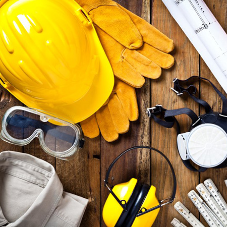
“Suicide kills more men in the construction industry than falls from height” is a poignant point according to mental health volunteers, in 2016 The Office for National Statistics published shocking figures showing the suicide rate in the construction industry is higher than in any other profession, labelled as ‘the silent epidemic’ these statistics are worrying, but why are things not improving?
It’s no doubt the construction industry lifestyle can be extremely challenging, tiring, and stressful. The hours can be incredibly long and strenuous, and current industry issues such as Brexit will no doubt add more pressure and unease. Recent statistics from Construction News suggest that little has improved over the past 12 months with a staggering 63% of respondents still not telling their employer the reason for their absence at work was mental health. This idea of being ‘embarrassed’ to talk about mental health needs to stop, construction workers need to know things don’t always have to be this way.
Does the stereotypical “tough guy” persona make it difficult for construction workers to open up to their colleagues about their mental health problems? It could be argued there’s a very evident stigma surrounding mental health in the workplace, with colleagues not feeling comfortable to express their emotions when they’re struggling. Although mental health is becoming widely more spoken about, it’s issues like this that lead to many workers suffering in silence, which is undoubtedly the worst-case scenario. There needs to be a greater focus on wellbeing within the construction industry which can be achieved with a few simple steps, here are a few things we can all do to break down this stigma and look after eachother:
Spot the signs

There are many signs to suggest an individual may be battling with mental health issues, it’s vital employers and colleagues are able to spot these signs before it may be too late. Here are some signs the Construction Financial Management Association have set to look out for:
• Lack of self-confidence.
• Isolation from peers.
• Increased lateness.
• Agitation and conflict among co-workers.
It must be considered that these signs aren’t always so easy to pinpoint, many individuals can mask their feelings behind a smile and essentially ‘bottle up’ their thoughts. It doesn’t hurt to ask someone if they’re okay if they don’t seem themselves, just because they might not open up to you instantly doesn’t mean they won’t appreciate your concern and feel that little bit brighter.
What’s being done currently?
Already, there are several charities aimed at mental health within construction such as 'Mates in Mind'
who aim to raise awareness and address the stigma of poor mental health and improve positive mental wellbeing in the UK construction industry.
Their main approach is to ‘educate and inform’ the workforce and ‘support organisations in creating the right programme for them’ when it comes to stress management. They advertise public courses on their site to make sure workers can spot the symptoms of anyone that might be struggling within the workplace. Mates in Mind hope to reach 100,000 workers in its first year and by 2025 to have reached 75% of the construction industry.
The Construction Industry Training Board (CITB) have also announced they have committed to fund the delivery of 13 ‘Mental Health First Aid’ training courses to train 156 construction workers in Mental Health First Aid skills. From September of this year, instructors will train a minimum of 2,500 on-site staff as Mental Health First Aiders by 2020. There’s even a new mental health app developed by the Lighthouse Construction Industry Charity providing vital information and guidance on depression, anxiety, suicidal thoughts, and stress.
These are all promising steps towards breaking down the stigma and tackling poor mental health, if we all work together we can all make a positive impact.
What can employers do to help?

• Raise awareness towards mental health and change our attitudes, if we provide knowledge to empower employees to look
after their mental health and wellbeing they might just make that next step of talking to someone.
• Employers should work together to educate each other on possible signs, knowing how to start the conversation with
someone can make a great difference.
• Don’t underestimate how important just one conversation can be, you could save someone’s life.
• Raising awareness through more readily available information in and around the working environment.
People need to be reminded that they are not alone, regardless of what industry you work in, mental health is extremely important and if you’re ever concerned about your own wellbeing you must seek help. People will listen, people want to help you. Understandably changes aren’t going to be instant, but baby steps are important for such a wide, ever growing issue. It’s okay to not be okay.
Related Blog Articles









